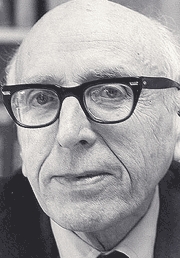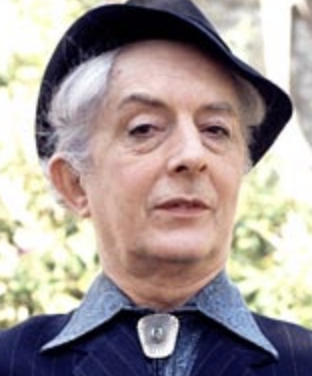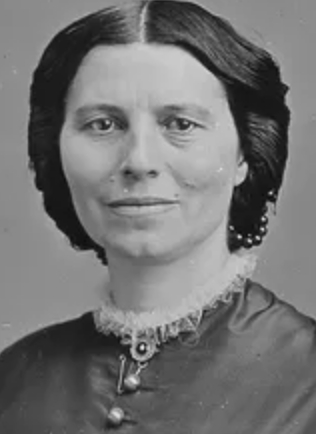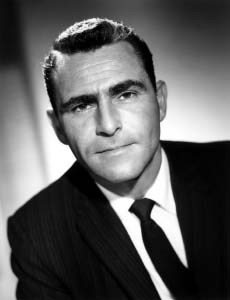December 25
Leo Pfeffer

On this date in 1910, Leo Pfeffer, a leading legal proponent in the mid-20th century of separation of church and state, was born in Austria-Hungary. He came to the U.S. at age 2 with his family. He was raised a Conservative Jew and remained observant, while later quipping that “the Orthodox consider me to be the worst enemy they’ve had since Haman in the Purim story!” (See featured quote below.)
After practicing law and working as associate general counsel for the American Jewish Congress, Pfeffer became a professor of political science in 1964 at Long Island University, where he taught until his retirement in 1980. He was the American Humanist Association’s Humanist of the Year in 1988.
His masterpiece, Church, State, and Freedom (1953), is the ultimate sourcebook for the history of the evolution of the principle of the separation of church and state. His eight books include The Liberties of an American: The Supreme Court Speaks (1956), Religious Freedom (1977) and Religion, State & the Burger Court (1985). Pfeffer called himself a “strict separationist in contrast to what is called ‘accommodationist.’ ”
Pfeffer pleaded “partly guilty” to inadvertently perpetuating the myth that “secular humanism” is a religion. In defending nontheist Roy Torcaso before the U.S. Supreme Court in Torcaso’s case challenging a religious test in Maryland to become a notary public, Pfeffer wrote that “there are religions which are not based on the existence of a personal deity.” His examples: Ethical Culturists, Buddhists and Confucians.
“My good friend Justice Black thought that wasn’t good enough. He put in the secular humanists. Who told him secular humanism? I didn’t have it in my brief! I couldn’t sue, because you can’t sue a justice of the Supreme Court. But since then I rued the day.” (Freethought Today, Jan/Feb 1986)
He married Freda Plotkin in 1937. They had two children, Alan Israel and Susan Beth. (D. 1993)
“I believe that the history of the First Amendment and also the Constitution itself, which forbids religious tests for public office, have testified to the healthful endurance of a principle which is the greatest treasure the United States has given the world: the principle of complete separation of church and state. I’m here to tell you that that principle is endangered today. ”
— Pfeffer speech to FFRF's national convention in Minneapolis (Sept. 29, 1985)
Quentin Crisp

On this date in 1908, writer and critic Quentin Crisp was born in suburban London. He attended a school in Derbyshire in his teens, which he later described as a cross between a monastery and a prison. He worked as an illustrator and designer of book covers, writing books such as Lettering for Brush and Pen (1936) and Colour in Display (1938).
He happened onto his 35-year stint of posing as an art school model, then wrote The Naked Civil Servant (1968) about his career. An award-winning film version, starring John Hurt, brought Crisp to public attention.
“An Evening with Quentin Crisp” debuted off-Broadway in 1978 and played off and on for two decades. His later books include How to Have a Life-Style (1976), Love Made Easy (1977), The Wit and Wisdom of Quentin Crisp (1998) and Quentin Crisp’s Book of Quotations (1989).
Openly gay and famed for his aphorisms, he is sometimes called a “20th-century Oscar Wilde.” Once asked if he were a “practicing homosexual,” Crisp replied, “I didn’t practice. I was already perfect.” (D. 1999)
“When I told the people of Northern Ireland that I was an atheist, a woman in the audience stood up and said, ‘Yes, but is it the God of the Catholics or the God of the Protestants in whom you don’t believe?’ ”
— Crisperanto: The Quentin Crisp Archives (www.crisperanto.org)
Clara Barton

On this date in 1821, American Red Cross founder Clarissa Harlowe Barton (known as Clara) was born in North Oxford, Mass., the youngest of five children. Her parents were members of the Oxford Universalist Church. Barton was deistic and remained a creedless Universalist throughout her life. She was reading by the time she entered school at age 4 and earned her teaching certificate at 17. At 29 she entered the Liberal Institute in Clinton, N.Y., to hone her teaching skills. By the time the Civil War broke out, she was working in the U.S. Patent Office in D.C., where she organized a relief program for soldiers.
When she learned that soldiers were dying from lack of medical supplies after the First Battle of Bull Run, she organized a successful relief drive. The U.S. Surgeon General granted her a pass to travel with Union Army ambulances, which she did for the next three years. After encountering the Red Cross in Europe, she came back to the U.S., lobbied for ratification of the Treaty of Geneva and founded the American Red Cross in 1881. She resigned as its director in 1904. She was a supporter of woman’s suffrage and other liberal reforms.
Barton never married or had children and died of pneumonia at age 90 at her home in Glen Echo, Maryland. (D. 1912)
Rod Serling

On this date in 1924, Rodman Edward Serling was born in Syracuse, N.Y. He enlisted in the U.S. Army in 1942, served in the Philippines and Japan and was discharged in 1945. He went on to graduate from Antioch College in Ohio in 1950 with a B.A. in English literature and drama, where he began writing scripts for radio programs. He met Carolyn Kramer at Antioch in 1948 and they had two daughters, Jodi and Anne. He also joined a Unitarian church at Antioch.
Serling started working as a radio and television writer, eventually landing in New York City. “Kraft Television Theatre” aired Serling’s 72nd script, “Patterns,” in 1955 and it won him an Emmy. Two more Emmys soon followed, in 1956 for “Requiem for a Heavyweight,” which was adapted into a film in 1962, and “The Comedian” (1958), both episodes of the show “Playhouse 90.” Serling is most famous for hosting “The Twilight Zone” (1959–64), as well as writing 92 of its 156 scripts.
He was passionate about social issues, opposing war, racism and capital punishment, and he often addressed these controversial topics in scripts for “The Twilight Zone.” Serling won two more Emmy Awards in 1960 and 1961 for outstanding writing in drama for his work on “The Twilight Zone,” as well as a 1963 Golden Globe Award for best television producer. His other work includes writing the script for the films “Planet of the Apes” (1968), “The Yellow Canary” (1963) and “Seven Days in May” (1964). He hosted and contributed scripts to the series “Night Gallery” from 1970-73.
He was a heavy smoker and died at age 50 after his third heart attack. (D. 1975)
“Theologically speaking, Rod was what we call a naturalistic humanist, and that was the underlying philosophy of my pulpit. Racial issues, class, power — you find all of these in his writings, and he found reinforcements for his viewpoints in his congregation.”
— Pastor Ernest Pipes, Unitarian Universalist Community Church of Santa Monica, Calif., which Serling attended. (uuworld.org, Nov. 1, 2007)
Annie Lennox

On this date in 1954, musician and philanthropist Ann “Annie” Lennox was born in Aberdeen, Scotland, to Dorothy and Thomas Lennox. She showed an early talent for music and won a place at the Royal Academy of Music in London when she was 17. There she met guitarist David Stewart. They were both involved in a band called The Tourists but left to form the synth-pop band the Eurythmics in 1980.
The Eurythmics released hit singles throughout the 1980s, including “Sweet Dreams (Are Made of This),” “Would I Lie to You?” and “Here Comes the Rain Again,” selling 75 million albums worldwide.
In 1990 Lennox split from Stewart to launch a solo career. She released the album “Diva,” which included the immensely popular single, “Walking On Broken Glass,” and sold six million copies. In 1995 she released the album “Medusa,” featuring the Grammy-winning single “No More I Love Yous.”
Lennox has won four Grammys as of 2019. In 2004 she won the Academy Award for Best Song for “Into the West” from the film “The Lord of the Rings: The Return of the King,” co-written with Fran Walsh and Howard Shore. Lennox performed the song live at the 76th Academy Awards. The song also won a Grammy and a Golden Globe.
Lennox has also won numerous humanitarian awards for her efforts in raising both money and awareness for the HIV/AIDS epidemic. In 2012 she married her third husband, Mitch Besser. He is an American gynecologist and founder of the HIV/AIDS preventing program Mother2Mother. She was married to German Hare Krishna devotee Radha Raman from 1984-85. She was married to Uri Frutchman, an Israeli film and record producer, from 1988 until their divorce in 2000. They have two daughters, Lola and Tali.
Lennox is not religious and told the Wall Street Journal in December 2010 that she’s “best described as agnostic.” She strongly criticized Pope Benedict XVI in 2009: “If there was ever an example of irresponsibility, it’s the Pope going to Angola, where people are dying because of unprotected sex, and telling them they should abstain. What planet is this person on?”
“So many wars and strife are borne out of opposing religious views. If people don’t have kindness, respect, tolerance, and compassion at the core of their beliefs, then their religion is pointless.”
— Lennox interview, Scottish Daily Record (Oct. 24, 2010)
